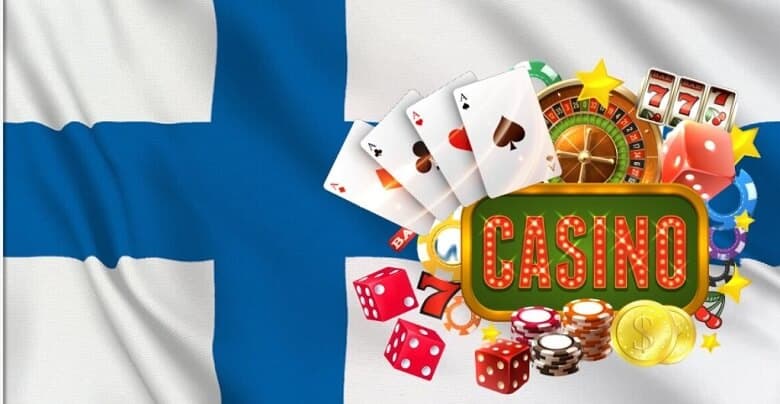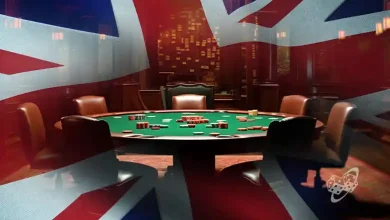The Casino Industry in Finland: The Government’s Attitude to Gambling

This content has been archived. It may no longer be relevant
The casino industry has been hit hard by the coronavirus pandemic. The S&P 500 casino and gaming index has sunk 51 percent this year. American Gaming Association estimated in March a potential $21 billion loss from casinos’ closure in the United States. Governments’ expectations from local casinos have also been lowered. Before the pandemic, Vancouver’s 2020 budget expected $7.1 million in gaming revenue from Parq Casino and Hastings Racecourse, while now, when all gambling sites in the city have been closed for almost three months, this figure is lowered to $1.6 million. The amount of $1.6 million is a far cry from $45 million that Vancouver collected from casino revenue in 2019.
There are countries, however, that do not experience losses in their gambling sector during the national lockdown for the simple reason that they enforce antigambling laws. There are neither brick-and-mortar casinos nor online gambling websites in North Korea, Singapore, the United Arab Emirates, Qatar, Lebanon, Cambodia, Nigeria, Uganda, and Ecuador. Other countries forbid one of the two forms of the casinos while turning a blind eye to the other. The Japanese government is still amid debates and discussions on the legalization of online casinos and the enactment of the Casino Bill. Like Japan, France outlaws online gambling but allows its citizens to wager in land-based casinos. Italy and Latvia discriminate between different kinds of online casinos, and so does Poland which prohibits all types of online wagering and sports betting.
Finland differs from other countries in the world in its enthusiastic attitude to gambling. The Finnish government encourages its citizens to gamble because the lion share of the casino industry’s revenue is invested in educations, sports, arts, and sciences. Finnish people even have a slogan saying that whether the gambling house wins or loses, a Finn always wins. Indeed, Finns always stand to benefit from the state-owned Finnish casinos, be they old brick-and-mortar casinos or new online casinos, called in Finnish “uudet nettikasinot.”
The Finnish government’s care for its people is so earnest that it is prepared to forfeit its own profit as long as they gain. Now, in the time of the national lockdown, when Finns gamble online more than usual and thus risk squandering large amounts of money, the government has lowered the maximum monthly and daily loss limit to 500 euros from 2,000 euros and 1,000 euros respectively. Finnish gamblers cannot spend now more than €500 a day, and if they reach this daily limit, they will not be allowed to gamble until the next month. The Ministry of the Interior said that the aim of these amendments was to reduce economic, social, and health harm caused by gambling during the epidemic.
The government pursues the same aim in dealing with slot machines. Playing slots is by far Finns’ favorite pastime. They have even entered the annals of gambling history as the nation that won one of the biggest payouts on the Great Mega Fortune Dreams slot. In 2017, the Finnish lady hit the first of NetEnt’s slot jackpots, reaping the profit of €3.5 million. Finland online casinos, both legal and illegal, provide thousands of slot machines games. There are even slot games thematically designed for Finnish players: such as Hall of Gods, the North Storm, Vikings Go Wild, Vikings Go Berzerk, and Vikings Go to Hell. They are based on Norse mythology and invite Finnish players to take part in the dark adventures of their ancestors. Slot machines are also ubiquitous in Finland in the real world. Slots are not only located in Finland’s land-based casinos but they are also placed in almost every grocery store, gas station, and kiosk across the country. Finns can play slot machines any time they wish without even presenting their IDs.
Knowing that Finns lose large amounts of money playing on slot machines, the Finnish government has again decided on the policy that would be detrimental to Veikkaus, the Finnish state-owned gambling agency. Before the lockdown, the government had promised to remove about 3,000 slot machines from supermarkets, gas stations, and kiosks. A few days ago, Veikkaus announced that it was going to increase the number of the removed slot machines to 8,000. When the government lifts the lockdown on casinos and slot machines on July 15, it will bring into operation fewer slot machines. Although in doing so, the government will make less handsome profits, it will guarantee that its citizens do not hurt their financial situation and do not become addicted to gambling.
Another indicator of the Finnish government’s flexibility is its attitude to offshore casinos. Officially, it permits no unlicensed gambling websites and bans the advertisement of their services in the country. Yet, there is no law in Finland stating that foreign online casino operators are illegal; nor is transferring money to them by Finnish players considered a criminal offence. Finns can, therefore, easily register with any offshore casino that accepts gamblers from Finland. The Finnish government might be unhappy to see its money slipping through its fingers, but many foreign casino providers are operating out of the European Union, of which Finland is a member. The government simply cannot crackdown on the websites of the fellow members of the EU and thus lets its citizens gamble with them to their heart’s content.
The Finnish government is thinking about making some changes in its Act on Lotteries in the future. Meanwhile, however, it is involved in helping Finnish people adapt to new quarantine regulations and making its land-based gambling sites ready to reopen.





